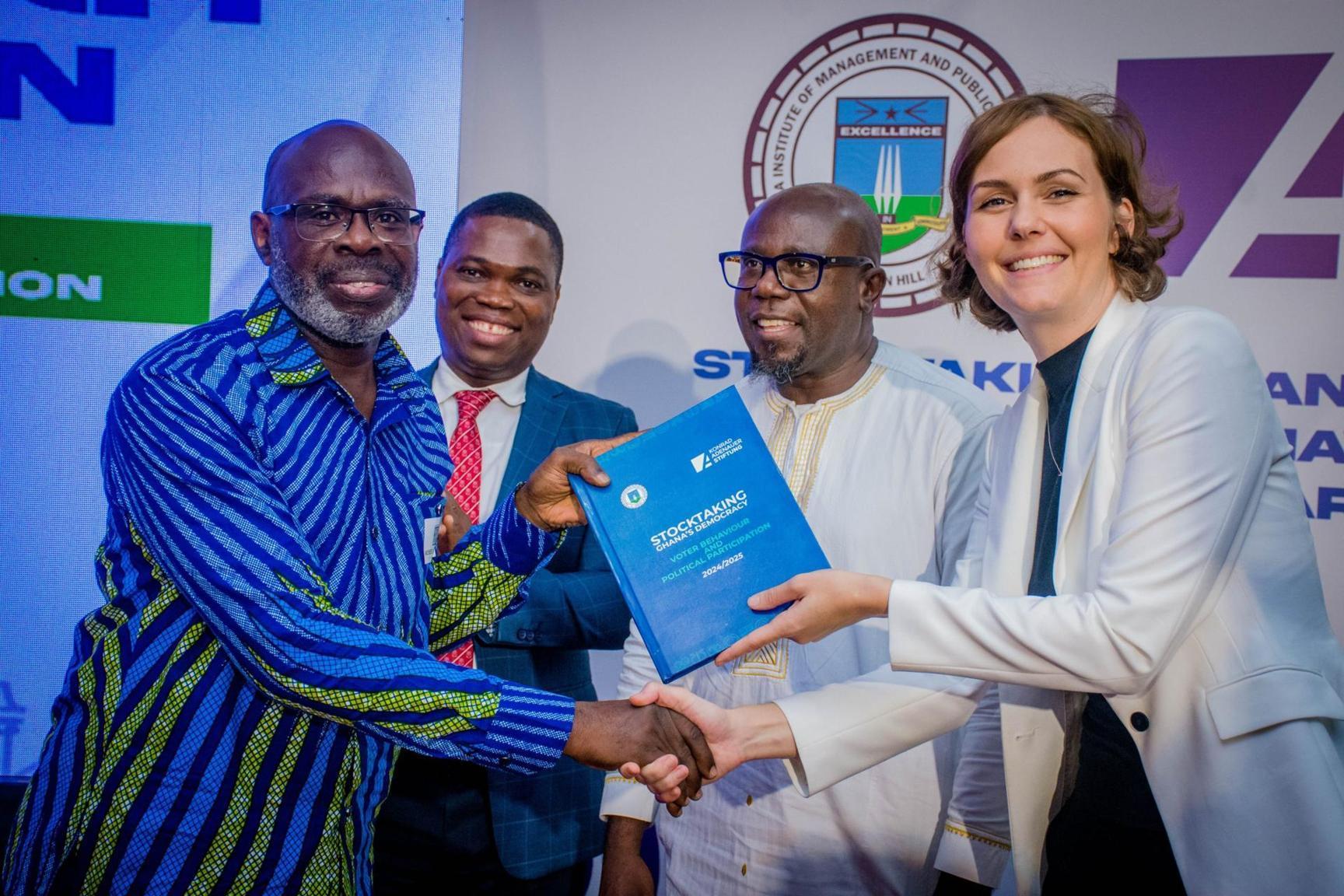Africa-Press – Ghana. A new survey suggests that voters favour a presidential contest between Vice President Naana Jane Opoku-Agyemang and Former Vice President Dr Mahamudu Bawumia in the 2028 elections.
The survey, jointly conducted by the Ghana Institute of Management and Public Administration (GIMPA) and Konrad-Adenauer-Stiftung (KAS), a German political foundation, examined voting behaviour in the 2024 elections and succession preferences within the National Democratic Congress (NDC) and New Patriotic Party (NPP) ahead of 2028.
Researchers sampled 16,988 respondents across all 16 regions, with a majority being traders, artisans, and farmers.
Among NDC supporters, the report states that Prof Opoku-Agyemang leads the field as a likely successor, with 35.5 per cent of respondents ranking her as the most suitable candidate.
Other NDC contenders ranked in order were Haruna Iddrisu – 14.9 per cent, Okudjeto Ablakwa – 10.2 per cent, Asiedu Nketiah – 8.3 per cent, and Julius Debrah – 2.2 per cent.
“However, there are 25.6 per cent of respondents who indicated they don’t know who should run on the ticket of the NDC for the 2028 elections,” the report added.
Among NPP supporters, the survey projected a two-horse race between Dr Bawumia (49.3 per cent) and Mr Kennedy Agyapong (24.6 per cent).
Other ranked contenders were Dr Yaw Osei Adutwum – 2.6 per cent, Dr Bryan Acheampong – 0.8 per cent, and Mr Boakye Agyarko – 0.6 per cent.
Similarly to the NDC, 21 per cent of respondents stated they did not know who should lead the NPP in 2028.
created by photogrid
Although voter intent for 2028 remains high, the report noted early signs of declining enthusiasm compared to previous elections.
On factors influencing voter decisions in 2024, the report found that 73 per cent of respondents voted based on party manifestos, while 46.2 per cent made their choice based on the likeability of presidential aspirants.
Dr Joseph A. Darmoe, Director of Programmes at KAS and Senior Lecturer at GIMPA, observed that the strong influence of party manifestos indicated a shift away from rigid party affiliation towards issue-based voting.
“Voters are moderately moving away from strong party affiliation… Party manifestoes are as critical as your campaign expenditure,” he said.
Mrs Anna Lena Sabroso Wasserfall, Country Representative of KAS, stated that the study serves as a reference for political parties, civil society, researchers, journalists, policymakers, and engaged citizens.
“Our motivation to carry out this study and to make an additional contribution to empirical political discourse in Ghana derives from our self-understanding as a political foundation,” she said.
For More News And Analysis About Ghana Follow Africa-Press







